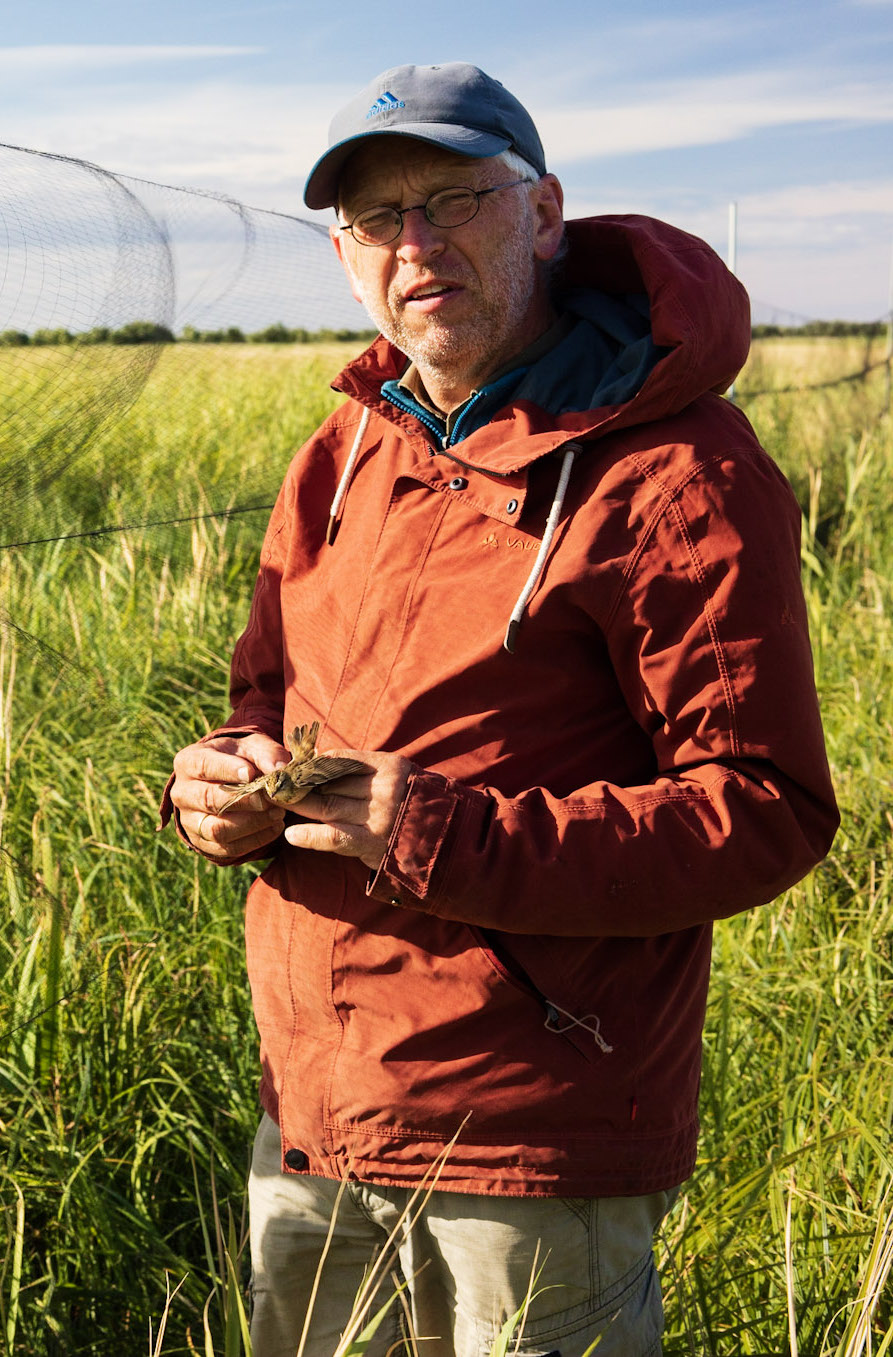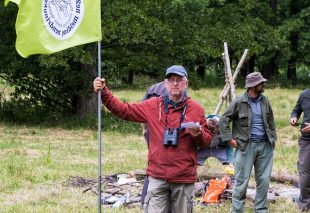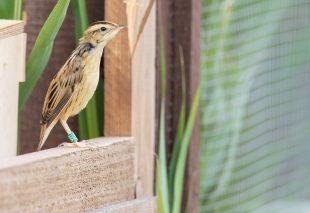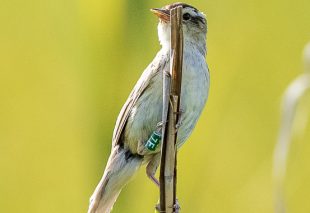
Dr. Martin Flade, the chairman of the BirdLife International Aquatic Warbler Conservation Team, who was visiting Lithuania this month, expresses his support and satisfaction of the currently running Aquatic Warbler conservation project in Lithuania and at the same time – his concern regarding the position of Lithuanian minister of Environment who recently announced that he wants to stop national funding for this project. Dr. Martin Flade says that the project shows great results and has high importance on the international scale, because the extremely successful translocation part of the project is going to become a blueprint for similar translocations planned in other European countries (Germany, NW-Poland, probably Hungary). Current considerations of the Lithuanian Ministry of Environment to stop the project are not understandable from the international point of view.
“The Lithuanian-Belarusian project shows a feasible way to restore fen mires with their rich biodiversity, and to bring even the Aquatic Warbler as the best indicator species for the conservation status of fen mires back to sites that have been abandoned in the past due to habitat devastation.” “After having talked to the chancellor of the Ministry on the 3rdof June I am quite confident that the Ministry will reconsider and revise its critical position on the project. That would be a good message for other states and organisations working hard for this globally threatened species and its habitats. They hope to learn from the Lithuanian experiences within the running project”.
The Aquatic Warbler translocation from Zvaniec in SW-Belarus to Zuvintas, which is part of the currently running project in Lithuania, is an integral part of an international strategy for the species’ conservation agreed among the signatory parties of the Aquatic Warbler agreement (Memorandum of Understanding concerning Conservation Measures for the Aquatic Warbler) under the Bonn Convention on Migratory Species (CMS), and is in line with the agreed international Species Action Plan.
From the scientific point of view, the translocation is consistently and thoroughly thought off. I was very impressed by the first results starting from the last year – when colleagues from Lithuania and Belarus succeeded to grow up and release to freedom 98 % of juveniles, considering that the natural mortality of juvenile birds in the first summer is about 50 %. News from this year is even more inspiring, latest monitoring show that already 9 males of those birds came back to Zuvintas from wintering sites in Africa. It is an increadible result, since we can assume that also about the same number of females has returned. Last year, our international advisory board agreed that if 20 %, which means 10 birds, will come back it will be the maximum success. Ornithologists will conclude the results at the end of this month. The success of translocation will determine the whole international conservation strategy of the species – by using this method we now can restore other populations in Europe.We in Germany are now seriously prepared to learn from the experience of Lithuanian and Belorussian colleagues and repeat translocation in restored habitats in our country. The same for Northest Poland and Hungary.
The project is following the successful work of previous mire conservation projects in Europe and uses the most effective habitat management methods that proved to work, e.g. building biomass processing facilities to utilize the late-cut grass, or using appropriate habitat restoration techniques. The project in Lithuania shows especially good results in communication and cooperation between nature conservationists and farmers. It shows a way, how farmers can coexist with nature and how interest of nature conservation and farming can be balanced. Intensive work with farmers and involvement of them into nature conservation here in Lithuania is another best practice example for other countries to follow. It is already described in our Aquatic Warbler Conservation Handbook published in 2018.
It is important to note that EU LIFE Programme is the main contributor and donor that helps joining efforts to protect the species in different countries. Thanks especially to this EU programme we succeeded to stop the decline of the globally endangered Aquatic Warbler in Eastern Poland and Lithuania. In recent years within 7 LIFE projects that were dedicated especially for the species, thousands of hectares of fen mires were restored not only at breeding, but also at stopover sites. Besides the Aquatic Warbler, many other rare species find home here. Hundreds of farmers also benefit from special agro-environmental schemes created in Poland and Lithuania within LIFE projects. I think, that without projects of the LIFE programme it would have been extremely difficult to protect the species” – says the scientist.
Dr. Martin Flade is the chairman of the International Aquatic Warbler Conservation Team, which is facilitated by “Birdlife International” and implements the Memorandum of Understanding concerning Conservation Measures for the Aquatic Warbler under the Bonn Convention on Migratory Species (CMS), which was also signed by Lithuania. The scientist is actively engaged into research and conservation of Aquatic Warbler for more than 20 years and he joined most of the expeditions that discovered all populations of the species. Dr. Martin Flade is director of theSchorfheide-Chorin Biosphere Reserve.











No comments!